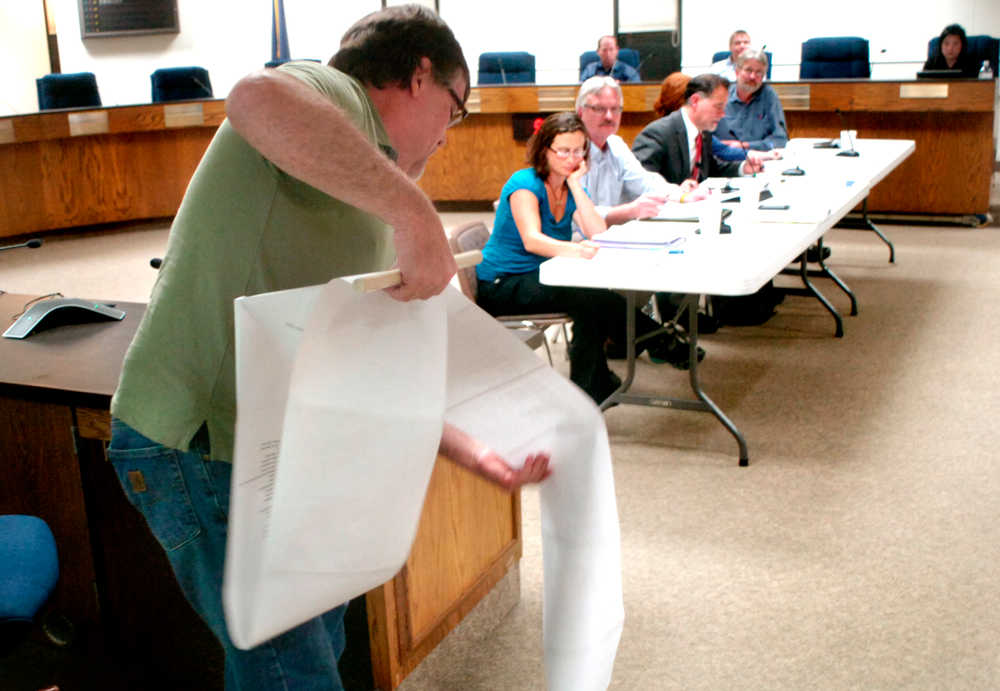JUNEAU — A bill that stalled in the Senate last year over concerns it limited public involvement in permitting decisions resurfaced Monday. But critics say the reworked version of HB77 being considered by the Senate Resources Committee doesn’t go far enough in addressing those concerns.
Two of the more controversial pieces of that bill dealt with general permits and who could apply for water reservations to guarantee certain levels of flow in a river or stream for things like fish and habitat protection.
The draft removed language that critics said gave the Natural Resources commissioner too much power in granting general permits. It also called for public comment on proposed general permits found unlikely to cause “significant or irreparable harm” to state land or resources. Under the proposal, a decision to issue a general permit could be appealed, but once the appeal period has ended and a permit is issued, the permit could not be appealed based on subsequent activities that adhere to terms of the permit.
Wyn Menefee, chief of operations for the state Division of Mining, Land and Water, has said the type of activities that would fall under that category are fairly small, such as boat storage on a river or mooring buoys — not coal leases, oil and gas or mineral leasing, or something like the proposed Pebble Mine.
The department says it has the authority to use general permits now and is just trying to clarify that in the law. Menefee called it an efficiency measure that can save time and money for the applicants while still protecting the environment.
Sen. Lesil McGuire, R-Anchorage, said she was “deeply concerned” about people having one opportunity to testify on general permits. She said she continued to have a hard time with that provision.
Under the version of HB77 that passed the House last year before stalling in the Senate for lack of support, governmental agencies could apply for water reservations, but individuals or groups could not. The draft would continue to allow individuals or groups to apply for water reservations. But Menefee said limitations were imposed to make sure the process was not used as a tool to delay projects. The commissioner would decide when an application is processed, and an applicant would have to provide at least five years of data to support the application. If the reservation was approved, it would be issued to a state agency.
Menefee told reporters that’s because companies, nongovernmental organizations and individuals don’t always stick around, and this would ensure the reservation persisted.
He told the committee the department has never approved a water reservation application by an individual or group. About 35 such applications are pending.
The bill also would limit administrative appeals to people “substantially and adversely affected” by a decision, who “meaningfully participated” in the public comment process.
Lisa Weissler, a consultant and attorney, said the basis of the bill is flawed. “It’s not about helping the public interest and keeping the public involved,” she said in an interview. “It’s the opposite of that.”
Lisa Wade, council member for the Chickaloon Village Traditional Council, said in a release that there was no consultation with her council or other tribes that she was aware of on “this harmful legislation, and once again this bill is being rushed through the Senate without adequate time for public review.”
Public testimony is scheduled on the bill on Wednesday.
Sen. Peter Micciche, R-Soldotna, who asked that the bill be sent to Senate Resources for further consideration after hearing concerns from his constituents during the interim, called the bill a compromise. He said he was pleased with the movement by the administration and, based on the limited amount of time he’d had to study the draft, said he thought it largely addressed the primary concerns of his constituents.

